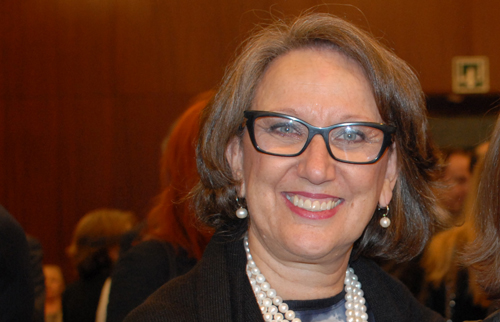The Diplomat
President of Government Pedro Sánchez came off relatively well at this week’s European Council, which finally agreed, among other measures, on the right of the two Iberian countries, Spain and Portugal, to manage their own energy prices and instructed the European Commission to present by May a proposal to decouple the gas market from the electricity market, one of the Spanish government’s great obsessions.
“The Iberian Peninsula has a special situation and, therefore, we have agreed on a possible special treatment so that it can deal with the situation,” declared the President of the European Commission, Ursula von der Leyen, at the press conference following the summit. Under this agreement, she said, Spain and Portugal will be able to “manage electricity prices”. Specifically, the two countries will be able to set the reference price of gas for combined cycle power plants, which would make it possible to lower energy costs with practically immediate effect.
The “Iberian” solution was proposed by Pedro Sánchez and the Prime Minister of Portugal, António Costa, after it proved impossible to convince the 27 EU states to fix the price of gas in order to contain electricity prices on the wholesale market, a proposal advocated by Spain, Portugal, Italy, Greece and Belgium and radically opposed by Germany and the Netherlands.
Madrid and Lisbon therefore chose to recall the “energy island” character of the Iberian Peninsula because of its very low interconnection with the European energy market – only 2.8% between Spain and France – to ensure that any intervention by the two Iberian countries in their own prices should not affect the joint functioning of the European market.
“An important agreement for the Iberian Peninsula,” Pedro Sánchez declared at the joint press conference with António Costa. “As of today, Spain and Portugal will be able to implement exceptional and time-limited measures to reduce prices,” he continued. To do so, he said, the two governments will have to present their measures next week to the European Commission for its authorization, taking into account “the special conditions of the peninsula” in energy matters. It is “an exceptional, temporary measure, which does not involve subsidizing gas, which does not distort incentives for renewables or electricity flows between countries” and which, therefore, “does not distort the European electricity market”, he added. In any case, Sánchez warned, “all the governments” of the EU should strive “to achieve a European solution”. “We will have to go to a more adequate reform of the energy market than the one we have,” he added.
On the other hand, the Council yesterday asked the European Commission to propose, next May, possible mechanisms to decouple the gas and electricity market in order to curb the contagion effect of high gas prices in the wholesale electricity market, a proposal that Sánchez already presented last April -but which has acquired special relevance in the context of the war in Ukraine- and on which he insisted during his recent round of contacts with almost a dozen European leaders to prepare this European Council.
After more than nine and a half hours of debate in which the proposals presented this Wednesday by the European Commission this week to deal with it were analyzed, the 27 also agreed to increase gas storage in the Member States and to set up mechanisms to carry out joint gas purchases at Community level, in the style of those carried out with the COVID-19 vaccines, as explained at a press conference by the President of the European Council, Charles Michel.
Ukraine
The Council, which opened on Thursday with U.S. President Joe Biden in attendance and Ukrainian President Volodymir Zelensky speaking via videoconference, reiterated the Versailles Declaration, which recognizes Ukraine’s European aspirations and European choice, as set out in the Association Agreement, and invited the Commission to present its opinion in accordance with the relevant provisions of the Treaties.
It also stated that the EU and its Member States will continue to provide political, financial, material and humanitarian support to Ukraine and its people and assured that the Union is determined to assist in the reconstruction of a democratic Ukraine, once the Russian attack has ceased, for which the European leaders agreed on the creation of a Solidarity Trust Fund for Ukraine.





